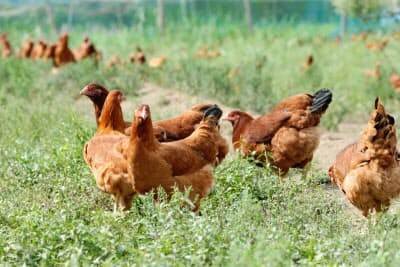Covid-19 - Impact op de Japanse pluimveesector
In Japan, the COVID-19 pandemic and the nationwide state of emergency in April and May caused a shift in consumer behavior, which affected various sectors including the poultry sector. With citizens told to stay home and restaurants asked to suspend their business under the state of emergency, demand for home cooking ingredients such as table eggs and broiler chicken meat increased substantially, while high-end premium products, such as branded “Jidori” (local chicken) meat, suffered a serious sales decline due to reduced demand from restaurants and hotels.
Households are purchasing more eggs and chicken meat for home cooking
According to the results of the Family Income and Expenditure Survey released by the Ministry of Internal Affairs and Communications in June, the amount of eggs purchased per household was 3,068 kg in April, 14,8% up from the same month last year, and the amount of chicken meat purchased per household was 1,805 kg in April, 32,2% up from the same month last year. The amount of money spent on eggs per household was 931 yen in April, 23,6% up from the same month last year, and the amount of money spent on chicken meat per household 1.574 yen in April, 23,8% up from the same month last year.
Egg prices fell due to a decline in demand from restaurants and food processors
Japan has a high self-sufficiency rate of 96% for eggs (2018), with only 4 percent of the country’s egg consumption covered by imported products. Roughly half of domestically produced eggs are table eggs sold at supermarkets, and the other half is shipped to restaurants and food processors (e.g., producers of confectioneries). The wholesale price of eggs in Tokyo (Zen-Noh M-size eggs, standard price) had been on an upward trend until the beginning of April, peaking at 210 yen per kilogram from 2 April to 17 April, reflecting an increased demand for table eggs. However, the price dropped to 165 yen on 18 May, and further dropped to 155 yen on 15 June due to a sharp decline in demand from restaurants and food processors. To avoid further price falls, domestic producers are asked to limit production and are paid a subsidy if they renew their laying stock and leave their layer house vacant for 60 days or more after the slaughter of the hens.
Broiler prices remain above the last year's levels due to increased demand from households
In May and June, the wholesale prices of broiler meat in Tokyo remained higher than the last year’s levels due to increased demand from households. In May, the price of broiler thigh meat at Tokyo wholesale market was 609 yen a kilogram, 28 yen higher than last year, with the price for breast meat at 255 yen a kilogram, 27 yen higher than last year. The same trend continued in June, with the price of broiler thigh meat at 610 yen a kilogram and the price of breast meat at 257 yen a kilogram.
Large-scale farms account for a major part of domestic production
According to the Statistics on Livestock published by the Ministry of Agriculture, Forestry and Fisheries, the number of layer farms decreased from 2.200 in 2018 to 2.120 in 2019, while the number of adult laying hens (6 months or more) raised per commercial farm increased from 63.200 in 2018 to 66.900 in 2019, showing a trend for large-scale operation. In 2019, farms with 100.000 hens or more (16 percent of all commercial layer farms) accounted for nearly 80 percent of all adult laying hens raised in Japan.
A similar trend is developing in the broiler sector as well. The number of broiler farms decreased from 2.260 in 2018 to 2.250 in 2019, while the number of broilers shipped per farm increased from 303.600 in 2018 to 307.700 in 2019. The farms that shipped 500.000 broilers or more in a year (12,5%) accounted for nearly 50 percent of all boilers shipped in Japan.
With large-scale farms contributing to a major part of domestic egg and chicken meat production, small to medium-sized farms are competing by offering high-quality branded products or products catering to the local market needs. However, producers of premium products have been hit hard by reduced demand from restaurants amid the coronavirus pandemic. In particular producers of Jidori (local chickens) suffered a serious sales decline as demand from restaurants and hotels almost disappeared. In Akita prefecture, three major distributors accumulated a total stock of 81 tons of the chicken at the end of March, 52 tons higher than the same month last year, Nikkei news reported in May. The Akita Prefectural Government allocated JPY 55,19 million in a supplementary budget for fiscal 2020 to help promote consumption of Hinai Jidori.

Hinai Jidori, a specialty of Akita Prefecture, is known as one of three delicious Jidori chickens in Japan.